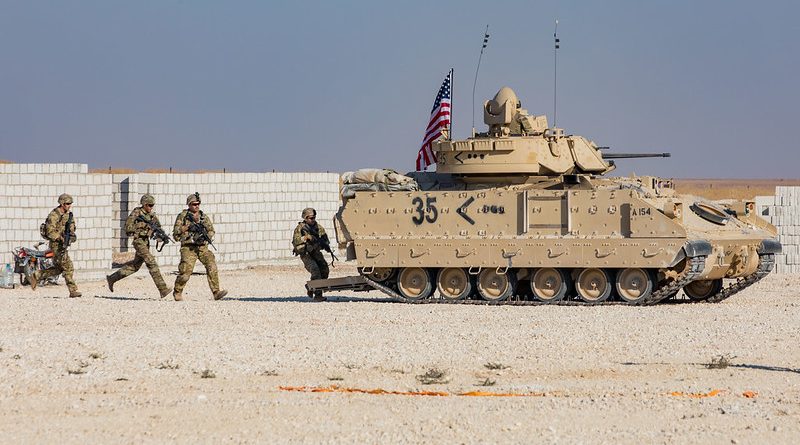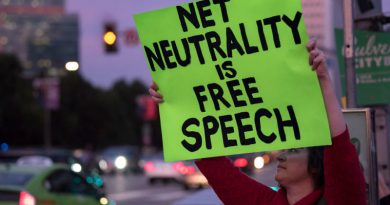Syrian Frustration Grows as State Presence Shifts in the Region
Collin Duran
Staff Writer
In the age of 24-hour news and social media, eye-catching headlines dominate. The subsequent story, however, is often overlooked. Take for example the Alabama abortion legislation that flooded Instagram stories in the middle of July. As intriguing as the headlines were, you may have noticed a lack of social media posts when the Alabama Supreme Court struck the law down in October. President Trump’s decision to withdraw nearly all American forces in Syria last month could be viewed in the same way; a notable headline that drew attention from both sides of the aisle, but was soon lost when the next major story broke.
The absence of media attention on a policy or piece of legislation’s results or consequences does not make them any less real, however. In northern Syria, American military withdrawal has not only left Syrian citizens enraged and hurt but has put their Kurdish allies in a particularly vulnerable position as Russian and Turkish forces move into the region.
When the President announced plans to withdraw military forces from Syria, he was surprisingly met with opposition from members of both the Democratic and Republican parties; Republican Senator Lindsey Graham even went on record to say that President Trump, “will have American blood on his hands if he abandons Kurds because ISIS will come back,” according to CNN. Despite the South Carolina Senator ultimately flipping his stance on the withdrawal to pander to the President, his comments are no longer looking like a soundbite to gain political clout, but a grim yet accurate analysis of the outcome of the President’s decision.
American troops were harassed while leaving Qamishli; their armored trucks decorated in rotten fruits and vegetables thrown by outraged Syrian civilians. Khalil Omar, a shopkeeper in the north-east province of Syria, articulated the feelings of the Syrian people in response to American withdrawal, telling The Guardian, “We sent our children with them to fight ISIS, and they abandoned us. Betrayal is hard to get over, and I hope we’ll remember this for the future. America knows the people who are murdering people on the roads very well, but they chose to turn a blind eye… True friends don’t walk away in hard times.”
The anger felt by Mr. Omar is shared throughout the state, as Russian and Turkish military trucks were subjected to the same treatment as their American counterparts when they arrived in northern Syria. Protestors in the Syrian city of Kobani proceeded to throw stones and rotten produce while chanting as new military forces moved into the region; their presence only possible with the departure of American forces. What does that mean in relation to Senator Graham’s comments? The alienation, distrust in foreign military forces, and outrage that Syrian citizens have articulated depicts a socio-political climate that often creates terrorist cells, and the arrival of Russian and Turkish forces will only complicate matters.
The Russian and Turkish militaries moved into Kobani to push Kurdish YPG (People’s Protection Units) militia forces away from the Turkish border. Per Reuters, the Turkish government still considers the militia a terrorist organization, despite the fact that the YPG fought alongside U.S. forces against ISIS in Syria and the high population of Kurds in northeastern Syria. The Kurdish forces were afforded two cease-fire agreements by the Syrian government to move the militia out of the region, but not all forces left.
According to the Military Times, skirmishes broke out at the end of the cease-fire in the towns of Ein Issa, Zirkan, and Afrin, where four people were wounded and one Turkish soldier died. Patrols of the northern provinces of Syria by both Russian and Turkish military forces will continue, and Syrian military forces are still arriving in the area.
Increased military presence from foreign states coupled with the departure of previously friendly American forces is undoubtedly creating a hostile environment in northeastern Syria. The President’s decision to leave the region has not only left the Kurdish people vulnerable but has also jeopardized the future of their YPG allies. In a region historically inhabited by the Kurdish people, enemy forces have set up camp and are targeting the militia of the people, leaving many Kurds feeling marginalized and attacked by their own government as well as abandoned on our own.
One can only hope that the next major headline to grab the attention of the American populous is not about the rise of a terrorist organization in northern Syria, otherwise, Senator Graham would be right; President Trump will have blood on his hands.


